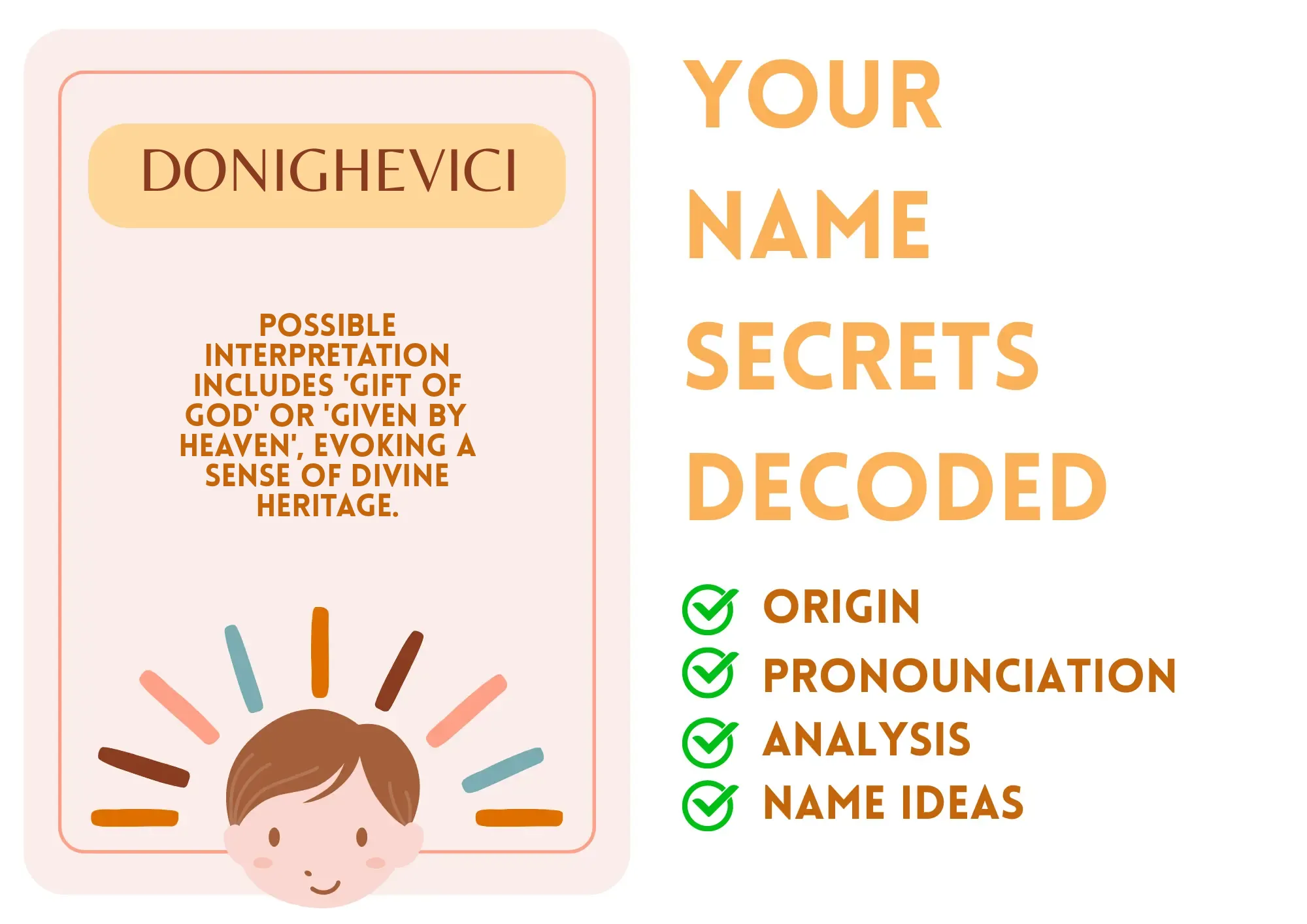
Donighevici
Donighevici is a unique and captivating name that likely draws inspiration from various cultural roots, particularly Slavic in nature. While it is uncommon, it evokes a sense of historical richness and cultural individuality. The name's meaning could be interpreted as 'gift of God' or 'given by heaven,' establishing a deep spiritual connotation.
The name is predominantly masculine but can be adapted for unisex usage. It carries the weight of heritage and ancestry, appealing to parents looking for something distinctive yet meaningful. Its rarity can make it a conversation starter, often leading to inquiries about its origin and significance.
Basic Information
Gender: Boy
Sounds Like: Doh-ni-geh-vee-chee
Pronunciation Explanation: The name is pronounced with emphasis on the second syllable: 'nee', with each syllable clearly articulated.
Summary and Meaning
Meaning: possible interpretation includes 'gift of God' or 'given by heaven', evoking a sense of divine heritage.
Origin: The name has roots that may trace back to Slavic languages, reflecting rich cultural heritage and traditional significance.
Usage: Traditionally considered a masculine name, its unique structure allows it to be utilized as unisex if desired.
Name Number (Chaldean)
Name Number (Pythagorean)
Religious and Cultural Significance
Religion: Non-specific, potentially viewed within a Christia
Background: While not directly linked to a specific religious practice, the implications of divine gifts can resonate within various faith traditions.
Cultural Significance: Donighevici can symbolize connections to ancestry, spirituality, and the importance of family heritage, attracting those who value history and culture.
Historical Significance: Though not widely documented, names such as Donighevici can carry historical weight, often linked to family lineage and stories passed through generations.
Popular Culture
Literature and Mythology: There are no prominent uses of Donighevici in mainstream literature or mythology, contributing to its uniqueness.
Movies and Television: Donighevici has not appeared in notable films or TV shows, making it an intriguing choice that stands apart from common/popular names.
Feelings and Perceptions
Perception: Donighevici is often viewed as exotic and elegant, evoking curiosity and wonder rather than familiarity.
Positive Feelings: Unique, profound, rich in heritage, culturally significant, strong.
Negative Feelings: Some may find it difficult to pronounce or remember due to its uniqueness.
Practical Considerations
Ease of Writing and Calling: The name Donighevici, while complex in appearance, is relatively phonetic. It may require a few repetitions for individuals to become accustomed to spelling and pronunciation.
Common Typos and Misspellings: Donigevici,Dohnihevici,Donighevichi,Donigehvici
Common Nicknames: Doni,Ghevi,Vici
Compatibility Analysis
Famous Persons Named Donighevici
No results found for Donighevici.
Related Names
Similar Sounding Names:
Donovan,Nicolai,Dominic,Donatello
Similar Meaning and Related Names:
Sibling Name Ideas (Brothers):
Sibling Name Ideas (Sisters):
Katya ♀️
Christian (Eastern Orthodox, Catholic)
Mira ♀️
Hindu, Jewish